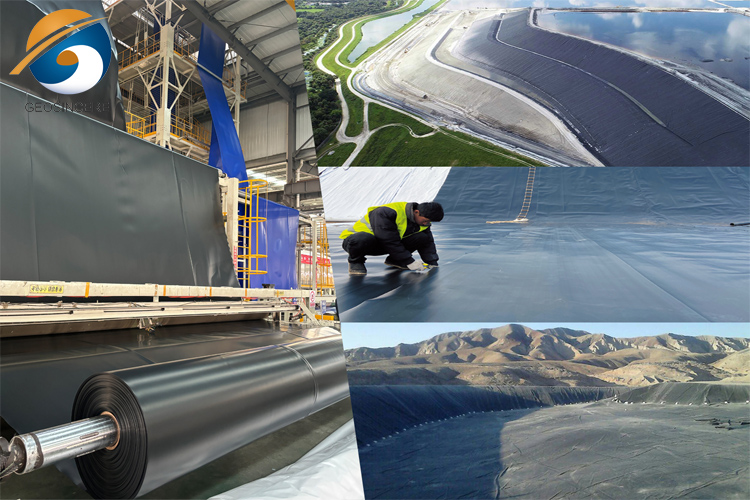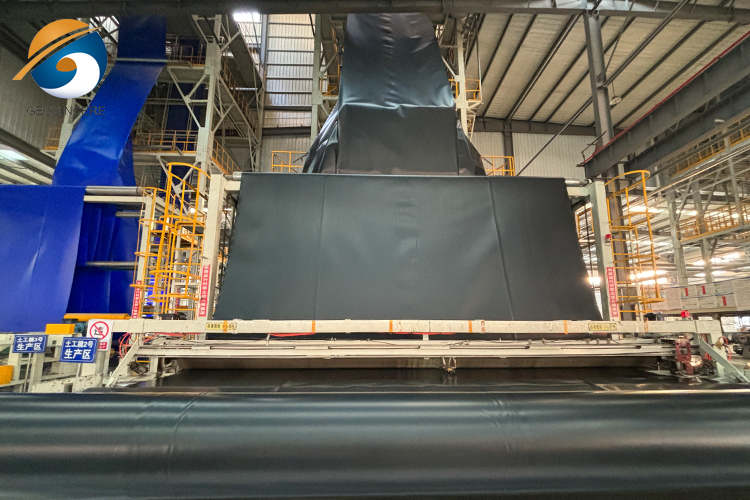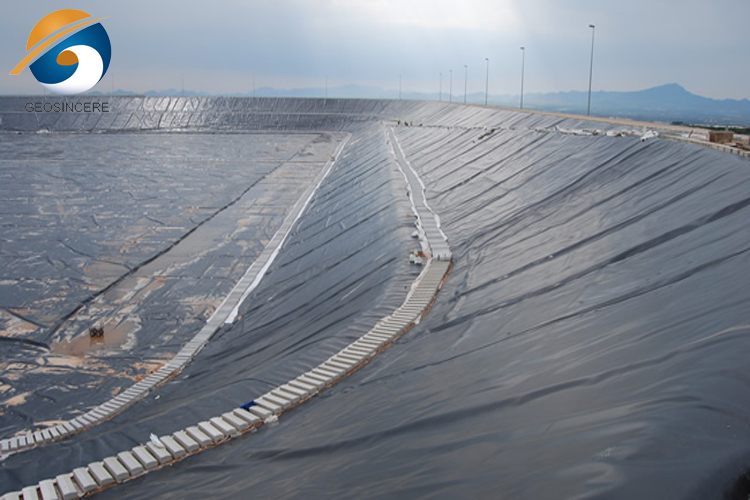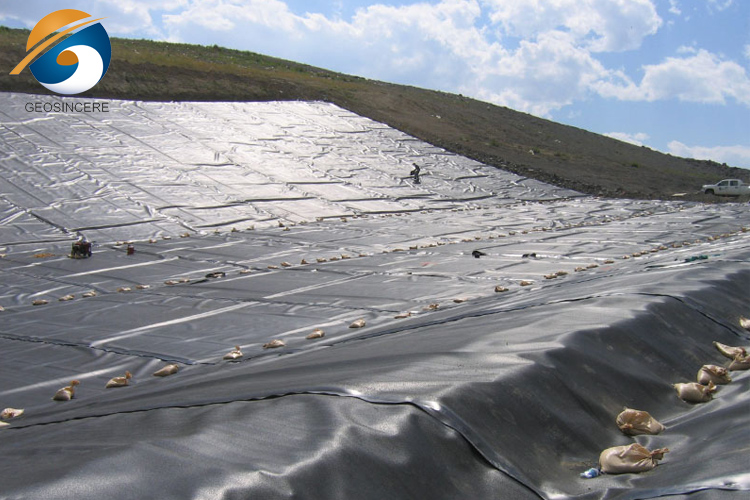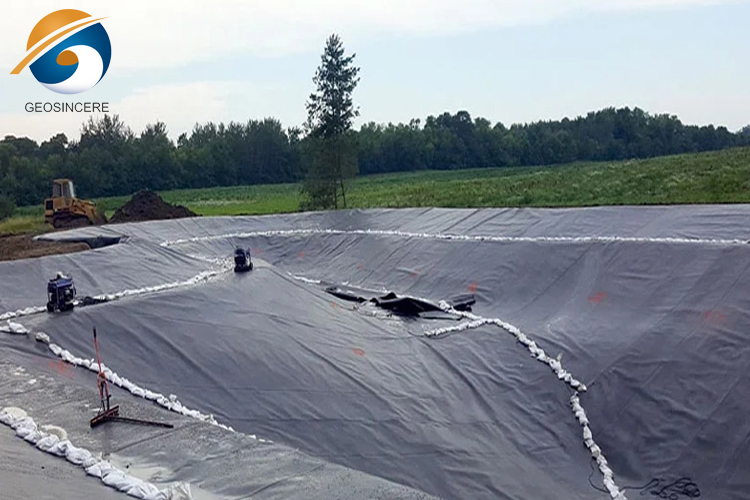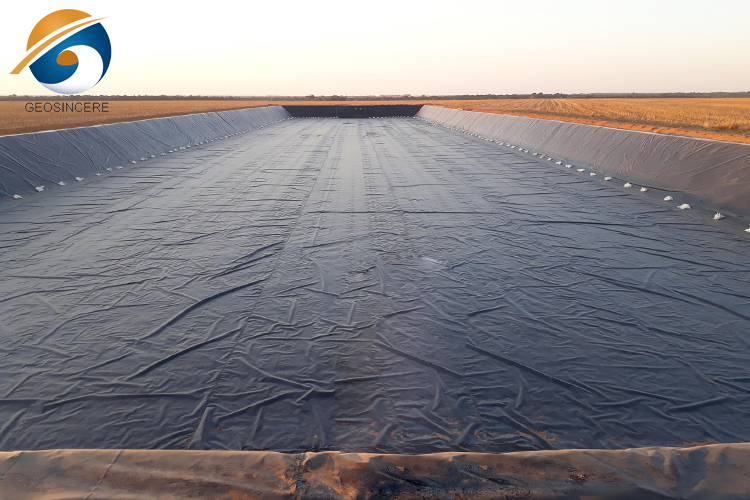What are The Applications of Geomembranes in Different Fields?
Geomembranes are versatile and durable synthetic liners that have been used across a wide range of industries and applications. These impermeable barriers play a vital role in containing, controlling and managing liquids and gases in a variety of environments. From environmental protection to infrastructure construction, their ability to provide effective sealing, waterproofing and sealing solutions makes them invaluable in various fields such as waste management, water resources, mining, agriculture and transportation.
As a sustainable and long-lasting material, geomembranes continue to evolve and adapt to meet the growing needs of a changing world, making them an important part of the pursuit of environmental responsibility and infrastructure resilience. Do you know what features and advantages geomembranes provide in different fields of application? This article explains for you.
1. Introduction to Geomembrane Products
Geomembrane is a thin film polymer synthetic material, mainly made of polyethylene, polypropylene, polyvinyl chloride and other polymer materials. It has good anti-seepage, anti-root puncture, anti-aging and other properties. It is widely used in water conservancy, roads, mining, garbage disposal and other engineering construction. Geomembrane can effectively isolate the upper and lower layers of soil, rock and water, prevent water pollution, inhibit soil erosion, and enhance the bearing capacity of the foundation to a certain extent.
Different engineering applications require geomembranes of different specifications and thicknesses. GEOSINCERE has advanced geomembrane production lines and professional technical teams. It can quickly customize geomembrane products of various materials, thicknesses, sizes and other parameters according to the personalized needs of customers, and provide a variety of customized production modes. In addition, geomembrane roll packaging is convenient for transportation and laying. In short, geomembrane is an important environmentally friendly engineering material that plays an important role in modern infrastructure construction.
2. What are The Characteristics and Advantages of Geomembranes in Different Fields?
From landfills to reservoir restoration, from road bases to high-speed railways, from tunnel waterproofing to artificial wetlands, geomembranes are everywhere. These lightweight, corrosion-resistant films have been widely used in various engineering fields and have become key infrastructure for urban construction and environmental protection.
2.1 Application in water conservancy projects:
- Excellent anti-seepage performance, can effectively block water pollution
- Strong corrosion resistance, suitable for water conservancy facilities construction
- Flexible laying, and can be used together with geotextiles to play its advantages
2.2 Application in road engineering:
- Good tensile strength and puncture resistance
- Can effectively isolate the roadbed soil and pavement layer
- Improve the bearing capacity of the roadbed and extend the service life of the road
2.3 Application in mining projects:
- Prevent ore waste from leaking and polluting groundwater
- Block the spread of harmful substances and maintain the surrounding ecological environment
- Easy to lay and maintain, suitable for complex terrain
2.4 Application in waste treatment projects:
- Excellent chemical corrosion resistance
- Isolate landfills from groundwater
- Avoid leachate leakage pollution
Whether it is ecological restoration, environmental protection, or infrastructure construction, geomembranes play a key role in different engineering fields, and become an ideal construction material choice with their excellent engineering performance and environmentally friendly characteristics.
3. What are The Expanded Applications of Geomembranes In Different Engineering Fields?
3.1 Water conservancy projects:
- In addition to common applications in reservoirs, channels, etc., geomembranes can also be used to build underground anti-seepage walls to isolate groundwater and pollutants.
- In the construction of seawalls and breakwaters, geomembranes can be used as wave-proof and anti-scouring layers to improve the disaster resistance of projects.
- In ecological projects such as river management and wetland restoration, geomembranes can be used as isolation layers, which are conducive to ecological environmental restoration.
3.2 Transportation projects:
- In the construction of highways and railways, geomembranes are not only used for anti-seepage, but also as isolation layers to enhance the stability of roadbeds.
- In the construction of airport runways, geomembranes can be used as anti-skid and anti-scouring layers to improve runway safety.
- In embankment slope reinforcement projects, geomembranes can be combined with vegetation measures to improve the embankment slope's ability to resist erosion.
3.3 Environmental protection:
- In addition to typical applications such as landfills and tailings ponds, geomembranes can also be used for anti-leakage of underground storage tanks, chemical plants, etc.
- In the remediation of contaminated soil, geomembranes can be used as an isolation layer to prevent the spread of pollutants.
- In the remediation of the bottom of lakes and reservoirs, geomembranes can be used as a barrier layer to curb endogenous pollution.
3.4 Other fields:
- In agricultural production, geomembranes can be used as anti-seepage layers for farmland irrigation and greenhouses.
- In construction projects, geomembranes can be used as anti-seepage and insulation layers for basements and underground garages.
- In the energy field, geomembranes can be used as anti-corrosion layers for oil pipelines and natural gas pipelines.
It can be seen that with the advancement of science and technology and the continuous expansion of engineering needs, the application fields of geomembranes are constantly expanding, showing broad application prospects in various fields.
4. In Addition to Engineering Applications, Does Geomembrane Have Other Uses in Daily Life?
Yes, with its good anti-seepage, waterproof, moisture-proof and durable properties, it also has a wide range of application prospects in daily life, which can not only meet engineering needs, but also bring convenience to personal life.
4.1 Gardening application:
- In home gardening, geomembranes can be used as shade nets or anti-weed mats to block sunlight and prevent weed growth.
- Geomembranes can also be used as anti-seepage layers for gardening ponds to prevent water leakage.
- When building flower beds or gardening walkways, geomembranes can be used as base mats to improve stability.
4.2 Home applications:
- Geomembranes can be used as waterproof isolation layers for roofs or basements to effectively prevent water seepage and moisture.
- Some thicker geomembranes can also be used as ground mats to improve the thermal insulation performance of the ground.
4.3 Sports and leisure:
- Used as waterproof mats for camping tents and awnings
- Used as moisture-proof mats and mats for outdoor hiking and camping
- Used as waterproof lining for car trunks
4.4 Other applications:
- Geomembrane can also be used as waterproof packaging material to protect fragile items from moisture.
- Used as a material for artistic creation and decoration
- Used to make simple processed products, such as fish ponds, artificial mountains, etc.
- In some environmental protection projects, geomembranes can also be reused and recycled as raw materials.
5. In Which Emerging Fields Does Geomembrane Have Potential Application Value?
As a highly functional and widely used engineering material, geomembrane also has broad application prospects in some emerging fields:
5.1 Renewable energy field:
- Used as a dustproof and waterproof protective layer for solar panels
- Applied in geothermal power generation system anti-seepage isolation layer
- As an anti-seepage and reinforcement material for wind power tower base
5.2 Urban underground space development field:
- Used for waterproof and anti-seepage isolation of underground pipelines and tunnels
- As waterproof paving materials for underground parking lots and basements
- Applied in underground space environmental governance and protection
5.3 Marine engineering field:
- Used as an anti-corrosion isolation layer for submarine oil pipelines
- Applied in the protection of offshore wind farm infrastructure
- As an anti-scouring and ecological restoration material for coastal engineering
5.4 Ecological environment restoration field:
- Used for anti-leakage isolation of landfills
- Applied in wetland restoration and desert control projects
- As an isolation barrier material for contaminated soil restoration
5.5 Aerospace field:
- Used as heat-resistant insulation material for spacecraft shells
- Anti-leakage protection for aerospace facilities
- As a material for parachutes for rescue of crashed spacecraft
It can be seen that with the continuous advancement of science and technology, geomembranes are gradually expanding their application areas with their excellent performance characteristics, showing great development potential in many emerging fields.
6. Conclusion
The versatility and durability of geomembranes make them an indispensable component across a wide range of industries, contributing to environmental protection, resource conservation, and the development of strong and reliable infrastructure. As sustainable practices and technological advances continue to drive demand for innovative materials, geomembranes remain at the forefront, providing comprehensive solutions to complex challenges.

